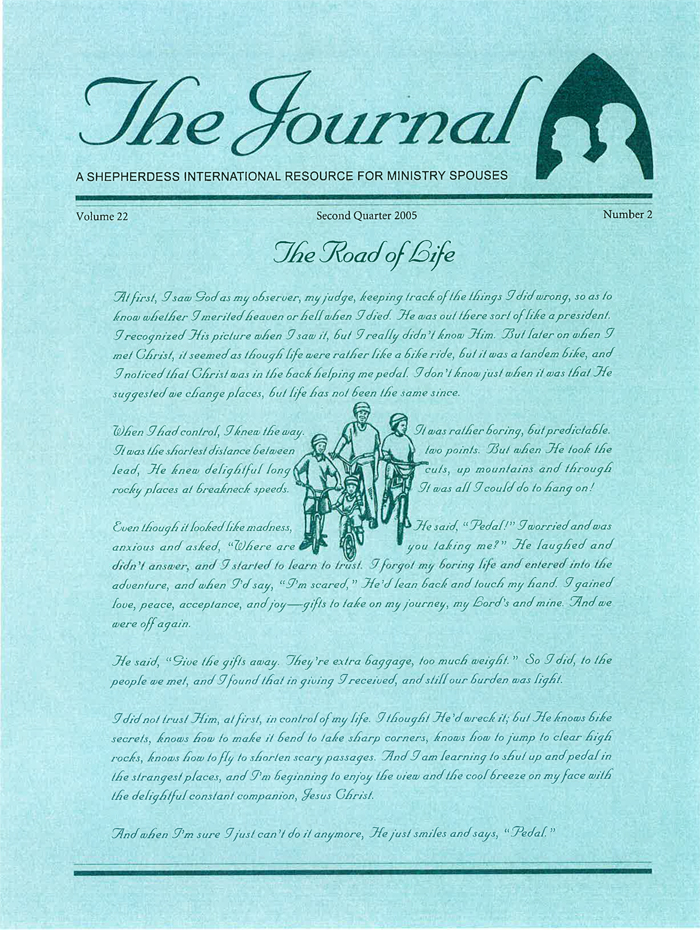A new phrase cropped up the other day, a product of the times in which we live: "relationship addiction."
It was used in reference to children and teens with addictive disorders and emotional problems. But in reflecting on this phrase, it could also describe a perhaps not uncommon situation affecting ministers.
"Relationship addiction"—when a member of the church seems to become so dependent upon the pastor that he/she is unable to make decisions without consulting him.
"Relationship addiction"—when increasingly frequent telephone calls come from the same parishioner who "just needed to talk."
"Relationship addiction"—when the pastor is asked to "please get my mail while I'm away" (or some similar request) ... "You're the only one I can trust."
Every pastor has experienced relationships where constant demands on his time become oppressive. But relationship addiction becomes a threat when the pastor begins to enjoy the dependence of a member upon him; and a mutual "addiction" is formed. The minister may be unaware that this is happening, or, when he is cautioned by others, he may resent their concern.
Because a minister is expected to be sympathetic, helpful, and willing to counsel, a dependent relationship could be misjudged. However, if the minister appears to be so emotionally involved with a parishioner that he is unwilling to separate himself despite counsel from others, the problem becomes serious.
The pastor's inability to be objective about the relationship may seriously affect his influence. His family will doubtless be hurt by the criticism his continued actions engender. Eventually, such a scenario could lead to the need to change parishes.
The mid-life pastor is especially vulnerable to "relationship addiction." He may recognize that his career is at a standstill. He may feel unappreciated by his superiors. His mate may be occupied with children or her own career (or both), and have less time to share his dreams and less patience with his frustrations. Or she may be intensely loyal to him and share in his denial that such a relational problem could exist.
One pastor actually discouraged a young woman who relied upon him from making other friends in the church. He disparaged some to whom she could have gone for assistance or advice. Her distrust of anyone but the pastor eventually became apparent. In this extreme case, both were victims of the "relationship addiction."
How can you as a pastor determine the status of your relationships?
1. Ask yourself, "If this relationship were severed today, what would I miss most about it?" Be totally honest in this evaluation. You may find that the relationship provides an enhancement for your ego which you do not receive elsewhere. You may appreciate the other's compliments and confidence. Perhaps he/she has time to listen when it seems no one else cares. You may recognize that the individual's smile, voice, and presence are becoming very important to you. Although no physical intimacy has taken place, there may have been fantasies about the possibility.
2. You may also ask yourself, "What am I receiving from this relationship now?" As a minister, you are most frequently in a giving capacity—yet you also receive. What does the person give to you? Does the role you play in the relationship give you a large degree of power over another's decisions? Is it possible that you enjoy exercising this power?
If a "relationship addiction" could be developing, some (or perhaps all) of the following need to be implemented:
1. Turn to God in prayer. Be completely open with Him. He knows our secret thoughts and the motives we may not admit to anyone else. We need to acknowledge to Him what we have discovered. His love for us will continue, constant and accepting.
2. Confide in another. Unwillingness to discuss the relationship with a trusted, objective person outside our family may indicate we are much too deeply involved.
3. Spend less time with the individual, including telephone time. This may be difficult. He/She may not understand why the pastor is "too busy" when he was previously so available. But this is a vital step to reconstructing the relationship.
4. Find and recommend an alternate counselor for the parishioner or counselee. Transferring dependence from the pastor to another wise and qualified Christian is important to the welfare of the counselee.
5. Repair home relationships. Look for ways to enhance your relationship with your spouse. Focus on him or her the attention and willingness to help that you may have given to the counselee. A renewal of warmth and intimacy may well be the result.
While no pastor is immune to "relationship addiction," no pastor needs to remain addicted. With God, objective counsel, personal discipline, and the desire to remain effective, the pastor can realize even greater fulfillment to his call to ministry.
